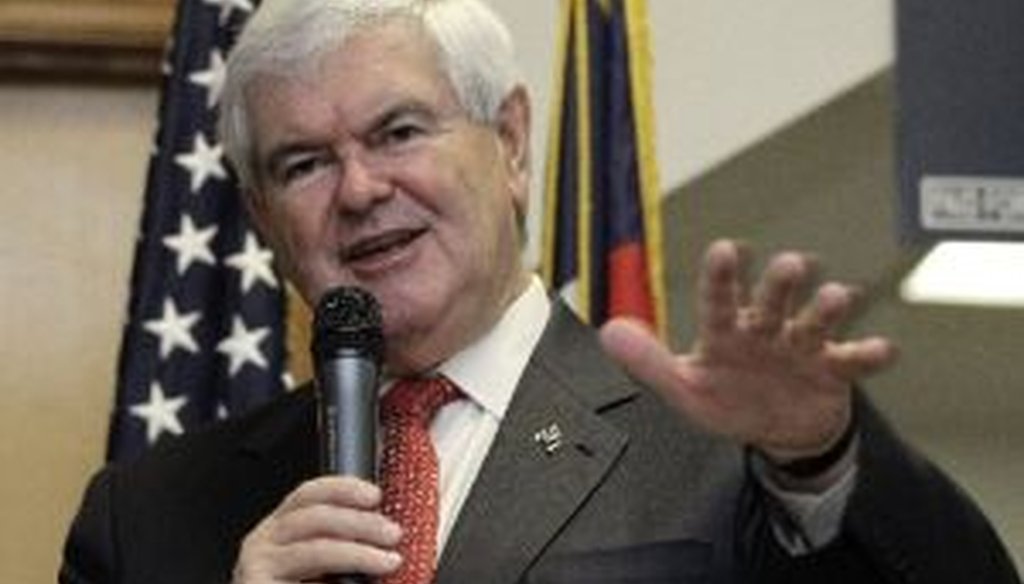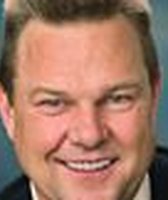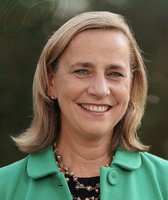Stand up for the facts!
Our only agenda is to publish the truth so you can be an informed participant in democracy.
We need your help.
I would like to contribute

Over the years, Newt Gingrich has provided PolitiFact with fascinating material to check. Here are five of our favorites.
We are saying farewell to Newt Gingrich, who is leaving the presidential race today. In honor of his departure, we chose our five favorite Gingrich fact checks from the 2012 campaign.
Rich janitors
During a Republican presidential debate on Dec. 10, 2011, in Iowa, Gingrich followed up on his suggestion that poor students should be given the opportunity to fill duties currently handled by school janitors, calling it a way to instill a work ethic while also saving money.
We received a flurry of requests from readers that we fact-check the claim that in New York City, "an entry level janitor gets paid twice as much as an entry level teacher."
It turned out that the group Gingrich called "janitors" was actually referring to a "first-year custodial engineer" -- someone who might "make minor repairs to steam plant, heating equipment, electrical equipment, plumbing, structure," and "requisition and account for custodial and maintenance materials, tools and supplies," and "hire appropriate personnel and train or arrange for their training, prepare payrolls and personnel forms, pay wages and provide Worker’s Compensation Insurance."
In other words, far from the kind of work a middle-schooler would be able to do. We rated the statement False.
Gingrich’s Twitter following
The Gingrich campaign had to defend its candidate after the website Gawker published an article reporting that most of his 1.3 million Twitter followers are fake. The campaign stood by its 1.3 million number. PolitiFact Georgia tried to sort it all out.
The New York-based Web search index company PeekYou said it had done its own analysis of Gingrich’s Twitter account before the Gawker article surfaced, concluding that only 8 percent of his Twitter followers were confirmed as "real human beings." The rest, he said, didn’t have real locations, used questionable names to register their Twitter accounts and/or didn’t have any other presence online.
PolitiFact Georgia looked at 1,000 Gingrich Twitter followers and found 27 percent of them had no picture, had never tweeted and little to no profile information. Many others with pictures had no profile information.
Combined, PolitiFact Georgia saw strong evidence that not all of these 1.3 million followers were real. The campaign’s claim earned a Mostly False.
The war on Christmas
Gingrich said the nation's obsession with being politically correct has come to this: Federal officials aren't allowed to say "Merry Christmas."
"This is actually weird ... I’ve been investigating this for the last three days. I am told that this is actually a 20- or 30-year-old law, which I have to say I find strange, and I would advocate repealing the law. Apparently if the president sends out Christmas cards, they are paid for the Democratic or Republican National Committees because no federal official at any level is currently allowed to say ‘Merry Christmas.’ And the idea, I think, is that the government should be neutral. … I'm going to go back and find out how was this law written, when was it passed. We’ve had this whole — in my mind — very destructive attitude in the last 50 years that we have to drive religion out of public life."
We decided to look into whether Gingrich is right that "no federal official at any level is currently allowed to say ‘Merry Christmas.’"
We started with "Memorandum on Religious Exercise and Religious Expression in the Federal Workplace," issued Aug. 14, 1997, by President Bill Clinton. We found the rule was respectful of employees' rights to express their religious preference. The more detailed rules affiliated with this memorandum include a theoretical example: "At Christmas time, a supervisor places a wreath over the entrance to the office's main reception area. This course of conduct is permitted."
We also looked at a Dec. 12, 2011, memo from the congressional "Franking Commission Staff" concerning "Holiday Messaging," a memo that got some holiday attention from conservative commentators. It turned out that both the House and Senate do restrict the use of taxpayer funds for sending out holiday cards, as well as birthday, anniversary, wedding, birth, retirement and condolence cards. So this was not a war on Christmas. It's more like a war on … greeting cards.
The kicker? The House regulations in question are dated June 1998, when the House Speaker was … Newt Gingrich. Throw a pair of britches on the yule log. We rated this one Pants on Fire!
Chevy Volts and gun racks
In a series of campaign events, Gingrich took aim at the Chevy Volt, an electric car that also can run on gas.
"This is an administration that is deeply opposed to Americans having the right to choose the kind of car or truck they want to drive," the former Georgia congressman told a crowd in Cobb County, Ga. "And I keep trying to get across to my liberal friends: You cannot put a gun rack in a Volt."
PolitiFact Georgia decided it was time for a little detour, so reporters returned to the newsroom parking lot with three gun racks and a stick as a gun stand-in. They were able to install two gun racks able to tote a combined total of four guns. This showed that Gingrich’s claim was a lemon. We gave him a False.
Space mirrors
This one was actually a claim that New York Times columnist David Brooks made about Gingrich.
In a Dec. 9, 2011, column, Brooks cited negatively what he considered half-baked ideas by Gingrich. "He has suggested that ‘a mirror system in space could provide the light equivalent of many full moons so that there would be no need for nighttime lighting of the highways.’"
We tracked down the suggestion in Gingrich’s first book, Window of Opportunity: A Blueprint for the Future, which came out in 1984.It’s included in Gingrich's recap of a June 1979, NASA-sponsored new concepts symposium in Woods Hole, Mass., "where 30 experts brainstormed a range of pioneering options for NASA worthy of Lewis and Clark." Here’s how Gingrich summarized the idea:
"The climate group at the Woods Hole conference suggested that a large array of mirrors could affect the earth’s climate by increasing the amount of sunlight received by particular areas, citing recent feasibility studies exploring the possibilities of preventing frosts in Florida or enabling farmers in high altitudes to plant their wheat earlier.
"A mirror system in space could provide the light equivalent of many full moons so that there would be no need for nighttime lighting of the highways. Ambient light covering entire areas could reduce the current danger of criminals lurking in the darkness. Mirrors could be arranged to light given metropolitan areas only during particular periods, so there would be darkness late at night for sleeping."
Raymond S. Bradley, a geoscientist at the University of Massachusetts, put it simply: "This is not a mainstream idea. It is one of the dumbest ideas I have heard of." We rated Brooks’ statement True.
Our Sources
PolitiFact Georgia, "Gingrich's gun rack quip about Volt shot full of holes," Feb. 24, 2012.
PolitiFact, "Newt Gingrich says no federal official is allowed to say 'Merry Christmas,' " Dec. 21, 2011.
PolitiFact, "Newt Gingrich says that in New York City, starting janitor is paid twice as much as a starting teacher," Dec. 12, 2011.
PolitiFact, "David Brooks says Newt Gingrich once proposed putting mirrors in space," Dec. 12, 2011.
PolitiFact Georgia, "Gingrich: Twitter account has 1.3 million followers," Aug. 9, 2011.




































